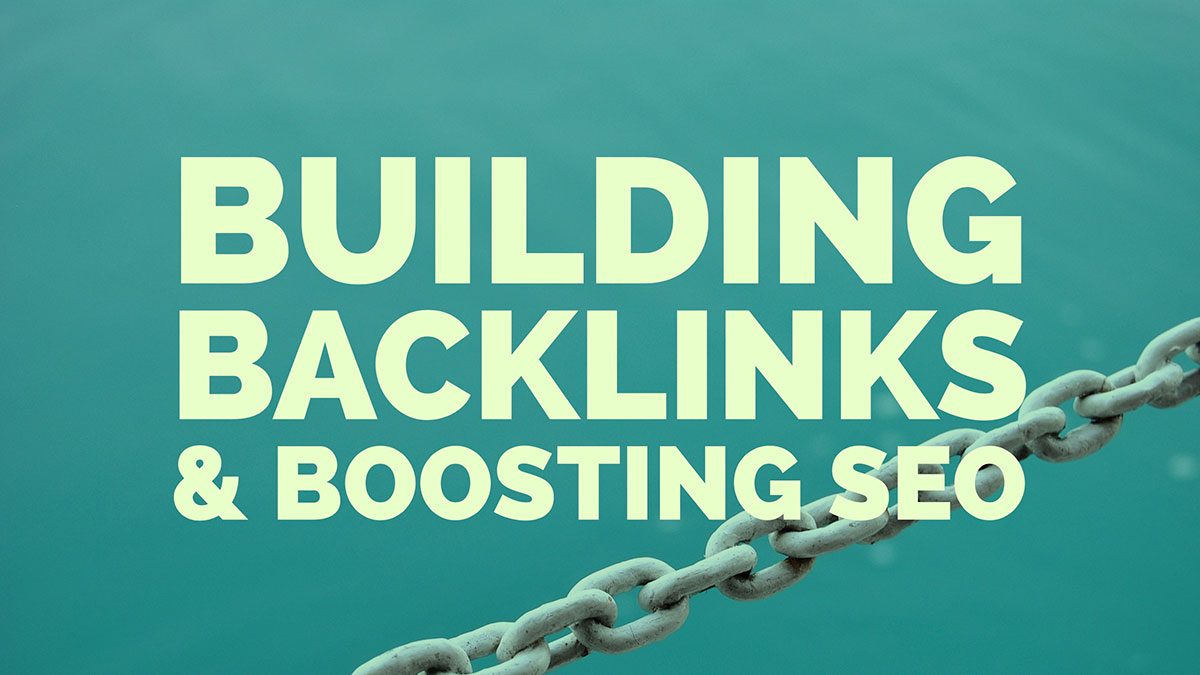Building backlinks to your website is a must to help increase your search engine optimization (SEO). But, before you dive into backlinks you must first understand what they are.
Backlinks are quite simply incoming links to your web page. When a web page links to another web page it is called a backlink. These are an important metric for ranking your web page.
Pages with a lot of backlinks tend to get better rankings in search engines. Especially if those backlinks are from highly trafficked and reputable websites.
Backlinks 101
Here are some common backlink terms and definitions you should know, from Shout Me Loud, a website that focuses on better blogging, to familiarize yourself a bit with backlinking:
Link Juice
When a web page links to any of your articles or your website’s homepage, it passes the link juice. This link juice helps with the ranking of the article, and also improves the domain authority. As a blogger, you can stop passing the link juice by using a nofollow tag.
Nofollow Link
When a website links to another website, but the link has a nofollow tag, that link does not pass the link juice. Nofollow links are not useful concerning the ranking of a page, as they do not contribute anything. In general, a webmaster uses the nofollow tag when he is linking out to an unreliable site. Example: Links from comments on other blogs.
Do-follow Link
By default, all the links that you add in a blog post are do-follow links, and these pass the link juice.
Linking Root Domains
This refers to the number of backlinks coming to your website from a unique domain. Even if a website has linked to your website ten times, it would be considered as the one-linked root domain.
Low-Quality Links
Low-quality links are links that come from harvested sites, automated sites, spam sites or even porn sites. Such links do far more harm than good. This is one reason you should be careful when buying backlinks.
Internal Links
Links that are going from one page to another within the same domain are called internal links, and the process itself is referred to as internal linking.
Anchor Text
Text that is used to hyperlink is called anchor text. Anchor text backlinks work great when you are trying to rank for particular keywords.
Why care about backlinks?
Good backlinks are going to help you move up in the SERPs (search engine results placement) faster.
There was a time when any old backlink would work, but Google now has an algorithm, called Penguin, which takes into account the quality of the sites where your backlinks are coming from.
If your site is about baseball bats, having links from other sites that are in the same niche, such as sports sites, is good. But, having a link to your baseball bat site from a site about cooking, isn’t going to be as good. You want to get links from authoritative and relevant sites, not from just anywhere.
Good backlinks will help improve your organic rankings, help your site get indexed by search engines faster, and give your site referral traffic. And, because referral traffic is usually targeted, it helps keep your bounce rate lower, since people who click over to your site are already interested in the subject at hand.
How to get backlinks.
It’s not so much the number of backlinks that you have any more, but rather the quality of the links. So, how do you go about building quality backlinks?
I’m not going to lie. It’s going to take some time and patience to do it properly, especially if you are doing it on your own, instead of hiring us or another SEO firm to manage it for you.
But, here are some ideas to get you started on creating backlinks for your site:
Write good content.
First and foremost, be sure you are steadily blogging or adding content to your site. And, don’t just add any old content, make it content that others will want to share.
Convert your best blog posts to whitepapers.
Take some of your more popular and best-written blog posts and convert them to PDF whitepaper that you can submit to document sharing sites.
Comment on other websites.
An easy way to start getting backlinks is by commenting on websites and forums that allow a dofollow link. But keep in mind not every website is dofollow. Some publish nofollow links from commenters. So be aware before you start posting all over the place.
If you use Chrome, add their “NoFollow” extension to your browser. Firefox users can use their “NoDoFollow” extension. This will help you identify whether a site published nofollow or dofollow links.
Whenever you comment on a forum, be sure a link your website is in your signature.
Answer questions on other websites.
Contribute your knowledge, and a link to your site by citing it in your answer, on sites such as Yahoo Answers. Be mindful, however, that not all question and answer sites are dofollow. Many are nofollow.
Submit press releases to news sites in your niche.
Send press releases to news websites with relevant updates about your company or website. Usually, you will get a backlink to your site if they publish the article.
Create manuals and niche specific tutorials.
Manuals and tutorials tend to receive a lot of backlinks. Create some on your website and encourage people to share, as long as they credit you with a link back.
Submit your website to local directories.
Backlinks from local directories are usually considered by Google as authority.
Do product or company reviews.
You can review products or businesses on your website, then send the manufacturer or company a link to your review. Often they will link back to you showing their customers the review that you did. Obviously, this is only going to happen if it’s a positive review. 😉
Create shareable infographics.
Infographics are all the rage right now, and people love to share them. Create infographics that can be shared by others, as long as they link back to your site.
If you aren’t terribly creative but know what you would like to say in your infographic, give us a call for a price quote on the creative part of the work.
Create shareable videos.
Create videos that others can share easily. Teach people about your industry or product. Again, if you aren’t especially good at video creation, we can help you out.
Or, give Adobe Spark a try. It’s free and it makes it easy for even a beginner to create a beautiful video to share on YouTube, Vimeo or their website.
Offer free downloads on your site.
Offer lots of free downloads on your website. People love sharing free stuff! This can be a PDF, a checklist, a tutorial or something your target audience might want to share with others who have the same interests.
Get your products reviewed.
If you sell a physical product from your website, send samples to top bloggers that target your likely customers in exchange for a review. Of course, you don’t want to be sending out tons of free products, so pick and choose your relationships wisely and establish some rapport with them prior to sending them a free product.
Get press coverage.
Even getting coverage from local press about your company or product can be powerful for backlink building.
Some other ideas.
For a more comprehensive look at link building strategies, and the time they may take to execute, check out this article at Point Blank SEO.
Ways not to build backlinks.
Some old methods for building backlinks don’t work well anymore or are totally frowned upon by search engines.
Some things you want to avoid doing when building backlinks are:
- Avoid buying links from sites like Fiverr
- Don’t opt into link networks
- Avoid BlogRolls
- Avoid article directory links
- Avoid links from totally unrelated niches
Many black hat SEOs have used these strategies for links in the past, and many sites have been penalized in search because of it. Don’t fall victim to these type of black hat SEO link building schemes.
Conclusion
Link building is very important to your long-term SEO strategy. Get creative and get started on building them. Set aside a few hours a week to work strictly on link building and over time you will have a much stronger result in search engines for the time you devote to doing it.
Do you have some create ideas for building links to your website? Have you done something that has given you lots of links back? Feel free to share in the comments section below.
- How a Boutique Web Design Agency Offers More Personalized Service - June 23, 2025
- When Should You Redesign Your Website? 7 Warning Signs - June 20, 2025
- We’re Honored: Named One of the Best Web Design Blogs in Florida by FeedSpot - June 10, 2025






